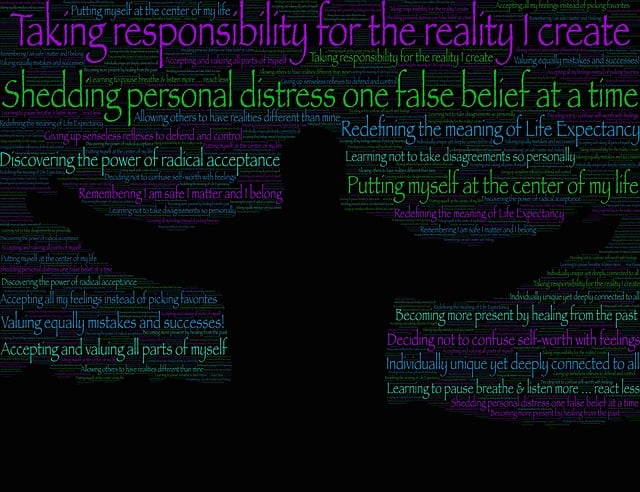Unlocking the Dark Side of Meditation: When Beneficial Practice Turns Harmful
Unlocking the Dark Side of Meditation: In today’s fast-paced world, meditation has become a popular tool to find inner peace, reduce stress, and enhance overall well-being. However, what if the very practice that promises tranquility and spiritual growth could instead pave the way to a darker path? This article explores the profound effects of meditation when it takes an unexpected turn towards harm.
While meditation has been celebrated for its myriad benefits, from improved focus to increased self-awareness, there is a growing body of evidence suggesting that it’s not always a panacea. In some cases, individuals may experience adverse effects that range from minor discomfort to full-blown psychological distress.
Drawing on scientific studies and personal accounts, we delve into meditation’s potential risks and challenges, shedding light on a topic often overlooked or dismissed. From the emergence of suppressed memories to exacerbating existing mental health conditions, these hidden dangers demand our attention.
By unraveling the dark side of meditation, this article not only aims to raise awareness but also to provoke thoughtful discussions about responsible and safe meditation practices. Whether you are a seasoned practitioner or just starting your journey, understanding the potential risks can help cultivate a more balanced and informed approach to this ancient practice.
The dark side of meditation: when it can become harmful
Meditation has long been hailed as a practice that brings numerous benefits to our mental, emotional, and physical well-being. It has been shown to reduce anxiety, improve focus, and promote a sense of calm and balance. However, there is a growing body of evidence that suggests meditation is not always a panacea. In some cases, individuals may experience adverse effects that range from minor discomfort to full-blown psychological distress.
While these negative experiences are not the norm, they can occur and deserve our attention. It is important to recognize that meditation is not a one-size-fits-all practice, and what may work for one person may not work for another. Understanding the potential risks can help us approach meditation with caution and make informed decisions about our own practice.

Signs and symptoms of harmful meditation practices
Recognizing the signs and symptoms of harmful meditation practices is crucial to address any negative effects early on. Some individuals may experience increased anxiety, depression, or even panic attacks after starting a meditation practice. Others may become more detached from their emotions, leading to numbness or disconnection from their experiences.
In some cases, meditation can also bring up suppressed memories or unresolved trauma, causing emotional distress and upheaval. It is important to note that these experiences are not a reflection of meditation itself, but rather the individual’s unique psychological makeup and history. However, they highlight the importance of approaching meditation with care and seeking support when needed.
Understanding the potential dangers of meditation
While the potential dangers of meditation may seem alarming, it is essential to understand that they are relatively rare. Research suggests that only a tiny percentage of individuals experience negative effects, and meditation remains a safe and beneficial practice for most people. However, it is crucial to be aware of these risks and to approach meditation with an open mind and a sense of self-awareness.
One potential danger of meditation is the exacerbation of existing mental health conditions. For individuals with a history of trauma, anxiety, or depression, meditation can sometimes bring up difficult emotions and memories that may be overwhelming to process. It is essential for individuals with these conditions to approach meditation cautiously and seek guidance from a mental health professional if needed.
Common misconceptions about meditation and its effects
There are several common misconceptions about meditation and its effects that can contribute to the potential dangers of the practice. One such misconception is that meditation is a quick fix or a cure-all for mental health issues. While meditation can certainly be a valuable tool in managing stress and promoting well-being, it is not a substitute for professional help when it comes to more serious mental health conditions.
Another misconception is that meditation should always be a peaceful and blissful experience. While meditation can indeed bring moments of tranquility and serenity, it can also be challenging and uncomfortable at times. It is essential to embrace the full spectrum of experiences that may arise during meditation and to approach them with curiosity and non-judgment.
How to maintain a balanced and safe meditation practice
Maintaining a balanced and safe meditation practice requires a mindful and informed approach. Here are some key considerations to help ensure a positive experience:
Start slowly
For those new to meditation, initiate your practice with shorter sessions and progressively extend the duration as you grow more at ease. This will allow your mind and body to adjust without overwhelming them.
Listen to your body
Pay attention to any physical discomfort or pain that may arise during meditation. If something doesn’t feel right, adjust your posture or take a break. It is essential to honor and respect your body’s limits.
Seek guidance
If you are unsure how to approach meditation or experiencing difficulties, consider seeking guidance from a qualified meditation teacher or mental health professional. They can support, and answer your questions, and offer personalized guidance based on your unique needs.
Seeking professional guidance and support
If you are experiencing significant distress or if meditation exacerbates existing mental health symptoms, seeking professional guidance and support is essential. A mental health professional can help you navigate the challenges and provide appropriate interventions to ensure your well-being. They can also help you determine if meditation is the proper practice for you at this particular time.
Alternative practices for stress reduction and mindfulness
If meditation proves challenging or harmful for you, it is essential to remember that alternative practices can still provide stress reduction and mindfulness benefits. Engaging in physical exercise, practicing deep breathing exercises, or exploring other mindfulness techniques such as mindful walking or mindful eating can cultivate presence and calm.
Finding a practice that resonates with you and supports your well-being is crucial. Experimenting with different approaches can help you discover what works best for your unique needs and preferences.
Conclusion
While meditation has been celebrated for its numerous benefits, it is essential to recognize that it is not a one-size-fits-all practice. For some individuals, meditation can lead to adverse effects that range from minor discomfort to significant distress. By understanding the potential risks and challenges, we can approach meditation with caution and make informed decisions about our own practice.
If you are experiencing difficulties with meditation, it is essential to seek guidance and support from a mental health professional. They can help you navigate the challenges and ensure your well-being. Remember, there are alternative practices available that can still provide stress reduction and mindfulness benefits. The key is to find a practice that resonates with you and supports your overall well-being.
In the end, the dark side of meditation should not discourage us from exploring this ancient practice. Instead, it should inspire us to approach it with mindfulness, self-awareness, and a willingness to seek support when needed. By doing so, we can unlock the transformative power of meditation while ensuring our safety and well-being along the way.







